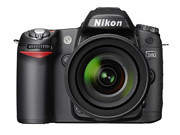Social networks and online communities deserve consideration for just about anyone hoping to have a presence on the Internet. They come in all shapes and sizes, ranging from headline roundups and forums to search directories and profile pages.
Although there are hundreds to choose from, I'm mentioning just three today because they demonstrate very distinct approaches. For lack of a better definition, let’s call them a closed niche membership, open niche membership, and open general membership.
MyRagan.com. MyRagan.com has corporate communication and related professionals, especially public relations practitioners, buzzing with excitement. It uses the Me.Com platform, which allows people to “rapidly deploy, customize and administer a social network specific to their interests.” Maybe.
I call it a closed niche membership because MyRagan.com does not really allow for easy navigation throughout the Me.com network. So, in many ways, it’s self-contained. It’s also extremely niche specific, so much so I that I’m not sure if a non-communicator would get it.
Stand Outs: MyRagan has a built-in audio-visual chat and IM features. It also has a direct link to the Ragan Career Center. Mark Ragan and his team are working very, very hard to make this work, recently asking for five or six volunteers to provide ideas for improving the network. The members, the ones who aren’t lost, are very helpful. I was also able to add my widget to my in-progress profile page. Cool.
Stand Offs: MyRagan is a navigational nightmare, especially because it toggles back and forth between MyRagan and other Ragan Communications sites. One also has to wonder how much is too much. There are forums, bulletins, discussions, groups, community blogs, personal blogs, and ... yeesh! To quote Geoff Livingston at The Buzz Bin: “It’s not the most aesthetic site, but it’s very, very functional.” (It is functional if you narrow your focus to a few features.) Now, if we can only teach social media newcomers what to blog about so the community blog doesn’t die off as a “promo post” board.
RecruitingBlogs.com. RecruitingBlogs.com was created by Jason Davis after he, um, retired from Recruiting.com. It’s everything a niche social network should be and opens to the Ning platform. Bouncing around Ning helps you connect with people in many fields and industries.
Thus, in many ways, RecruitingBlogs.com is an open niche network. It’s laid out extremely well as everything is on the front page, including scrolling RSS feeds from every recruiting blog on the planet (that’s worth reading) and then some. Keep in mind though, not all Ning networks are created equal; Davis really knows his stuff.
Stand Outs: RecruitingBlogs.com not only benefits from an expert network creator, but also an experienced group of recruiters who blog. Many of them have had blogs for two years or more. They also make up some of the best read blogs on the Web, which means most content is razor sharp. It is a niche model to be followed, pure and simple. To check out the greater Ning network, click one button. Done.
Stand Offs: Not much, unless you just don’t like recruiters (I do). While I know Davis is not able to do everything he wants to do on Ning, most people would never know it. Seriously, other than the occasional lag and maybe a missing “about page” or “highlighted features page” for newcomers (eg. I know what the chatter wall is good for on my profile, but newcomers might not), I love it.
BlogCatalog.com. BlogCatalog.com is the fastest-growing social blog directory for a reason. It is completely open to anyone and, as long as your blog is approved (about 48 hours unless you have questionable content), you’ll be able to meet some wonderful people.
BlogCatalog.com is also different from the aforementioned niche networks because it owns its own technology, features, and widgets. Antony Berkman bought a dying directory six months ago and turned it into a company worth watching.
Stand Outs: There is a real benefit in having a general open network because the skill sets of the staff and membership are deep. The newest feature is brilliant, making it the first stop of the day for many bloggers. Right on your profile, you can add some of most popular communities you belong to: AIM, del.icio.us, Digg, Facebook, Flickr, Last.fm, MyBlogLog, MySpace, StumbleUpon, Technorati, and Twitter. And that's just for starters.
Stand Offs: None to speak of. At a glance, some professionals might be miffed by the abundance of active members with personal blogs and monetorization blogs, but only until you get to know them. They are extremely nice, approachable, and deeply talented. Collectively, they know more about social media than any niche group I’ve come across. You also won’t find a BlogCatalog.com blog as Berkman and his staff mostly communicate on the discussion board (but they all have their own blogs). Yet, they are among the most engaging and friendly non-niche social directory hosts anywhere.
So there you have it. While each has its own culture and climate, they are just like any group you might belong to in person: you get back what you put into them.
The best bet is to put your company (or personal) strategy first. Then, join several but only become active on those that best fit your objectives because as we all know (I hope), there is no such thing as a social media strategy. Social media is a versatile tactic.
Beyond that, social networks are allowing people to participate online without ever starting a blog, vlog, or radio show. But for those who do, they represent the best way to gain targeted exposure.
Although there are hundreds to choose from, I'm mentioning just three today because they demonstrate very distinct approaches. For lack of a better definition, let’s call them a closed niche membership, open niche membership, and open general membership.
MyRagan.com. MyRagan.com has corporate communication and related professionals, especially public relations practitioners, buzzing with excitement. It uses the Me.Com platform, which allows people to “rapidly deploy, customize and administer a social network specific to their interests.” Maybe.
I call it a closed niche membership because MyRagan.com does not really allow for easy navigation throughout the Me.com network. So, in many ways, it’s self-contained. It’s also extremely niche specific, so much so I that I’m not sure if a non-communicator would get it.
Stand Outs: MyRagan has a built-in audio-visual chat and IM features. It also has a direct link to the Ragan Career Center. Mark Ragan and his team are working very, very hard to make this work, recently asking for five or six volunteers to provide ideas for improving the network. The members, the ones who aren’t lost, are very helpful. I was also able to add my widget to my in-progress profile page. Cool.
Stand Offs: MyRagan is a navigational nightmare, especially because it toggles back and forth between MyRagan and other Ragan Communications sites. One also has to wonder how much is too much. There are forums, bulletins, discussions, groups, community blogs, personal blogs, and ... yeesh! To quote Geoff Livingston at The Buzz Bin: “It’s not the most aesthetic site, but it’s very, very functional.” (It is functional if you narrow your focus to a few features.) Now, if we can only teach social media newcomers what to blog about so the community blog doesn’t die off as a “promo post” board.
RecruitingBlogs.com. RecruitingBlogs.com was created by Jason Davis after he, um, retired from Recruiting.com. It’s everything a niche social network should be and opens to the Ning platform. Bouncing around Ning helps you connect with people in many fields and industries.
Thus, in many ways, RecruitingBlogs.com is an open niche network. It’s laid out extremely well as everything is on the front page, including scrolling RSS feeds from every recruiting blog on the planet (that’s worth reading) and then some. Keep in mind though, not all Ning networks are created equal; Davis really knows his stuff.
Stand Outs: RecruitingBlogs.com not only benefits from an expert network creator, but also an experienced group of recruiters who blog. Many of them have had blogs for two years or more. They also make up some of the best read blogs on the Web, which means most content is razor sharp. It is a niche model to be followed, pure and simple. To check out the greater Ning network, click one button. Done.
Stand Offs: Not much, unless you just don’t like recruiters (I do). While I know Davis is not able to do everything he wants to do on Ning, most people would never know it. Seriously, other than the occasional lag and maybe a missing “about page” or “highlighted features page” for newcomers (eg. I know what the chatter wall is good for on my profile, but newcomers might not), I love it.
BlogCatalog.com. BlogCatalog.com is the fastest-growing social blog directory for a reason. It is completely open to anyone and, as long as your blog is approved (about 48 hours unless you have questionable content), you’ll be able to meet some wonderful people.
BlogCatalog.com is also different from the aforementioned niche networks because it owns its own technology, features, and widgets. Antony Berkman bought a dying directory six months ago and turned it into a company worth watching.
Stand Outs: There is a real benefit in having a general open network because the skill sets of the staff and membership are deep. The newest feature is brilliant, making it the first stop of the day for many bloggers. Right on your profile, you can add some of most popular communities you belong to: AIM, del.icio.us, Digg, Facebook, Flickr, Last.fm, MyBlogLog, MySpace, StumbleUpon, Technorati, and Twitter. And that's just for starters.
Stand Offs: None to speak of. At a glance, some professionals might be miffed by the abundance of active members with personal blogs and monetorization blogs, but only until you get to know them. They are extremely nice, approachable, and deeply talented. Collectively, they know more about social media than any niche group I’ve come across. You also won’t find a BlogCatalog.com blog as Berkman and his staff mostly communicate on the discussion board (but they all have their own blogs). Yet, they are among the most engaging and friendly non-niche social directory hosts anywhere.
So there you have it. While each has its own culture and climate, they are just like any group you might belong to in person: you get back what you put into them.
The best bet is to put your company (or personal) strategy first. Then, join several but only become active on those that best fit your objectives because as we all know (I hope), there is no such thing as a social media strategy. Social media is a versatile tactic.
Beyond that, social networks are allowing people to participate online without ever starting a blog, vlog, or radio show. But for those who do, they represent the best way to gain targeted exposure.


























